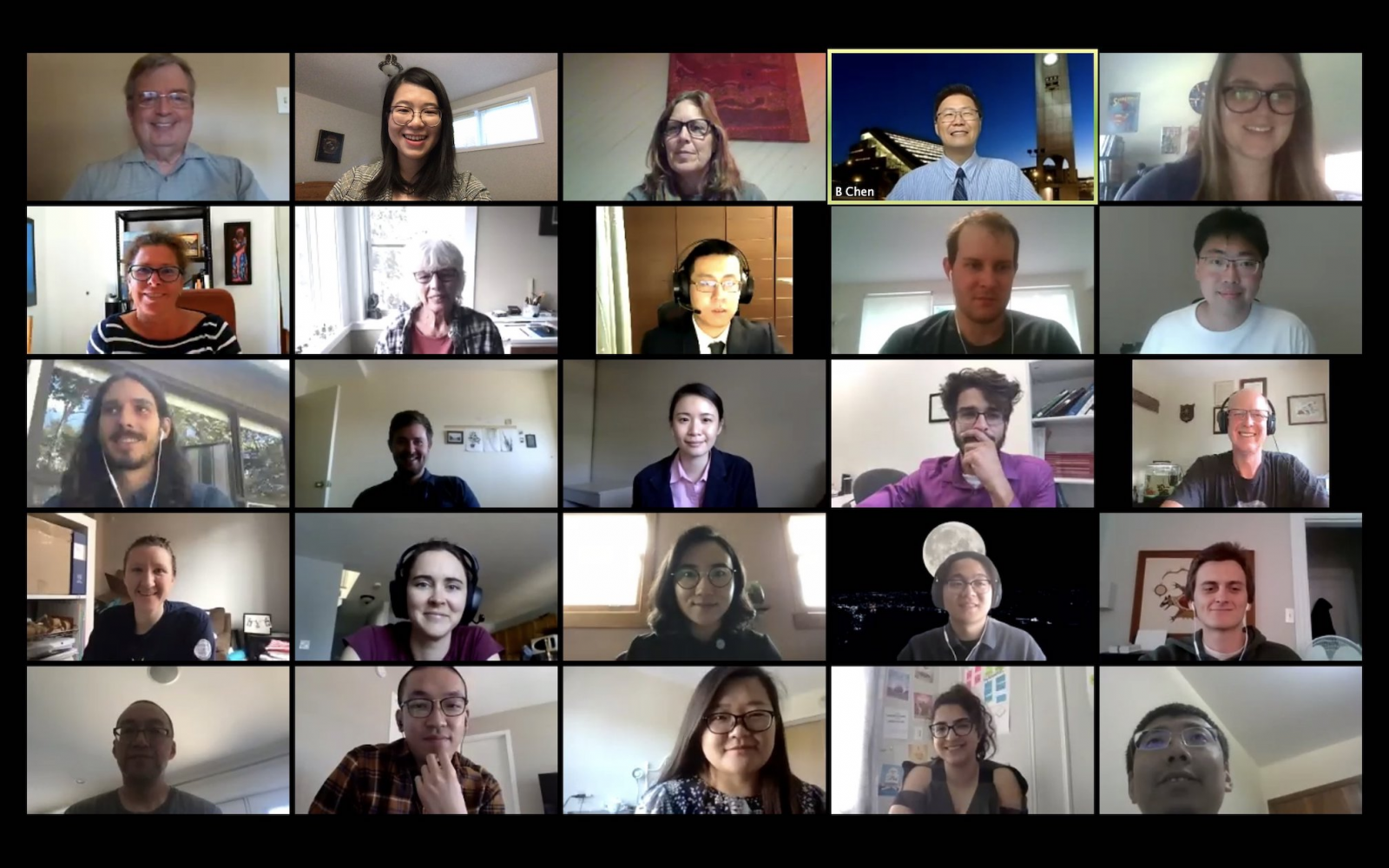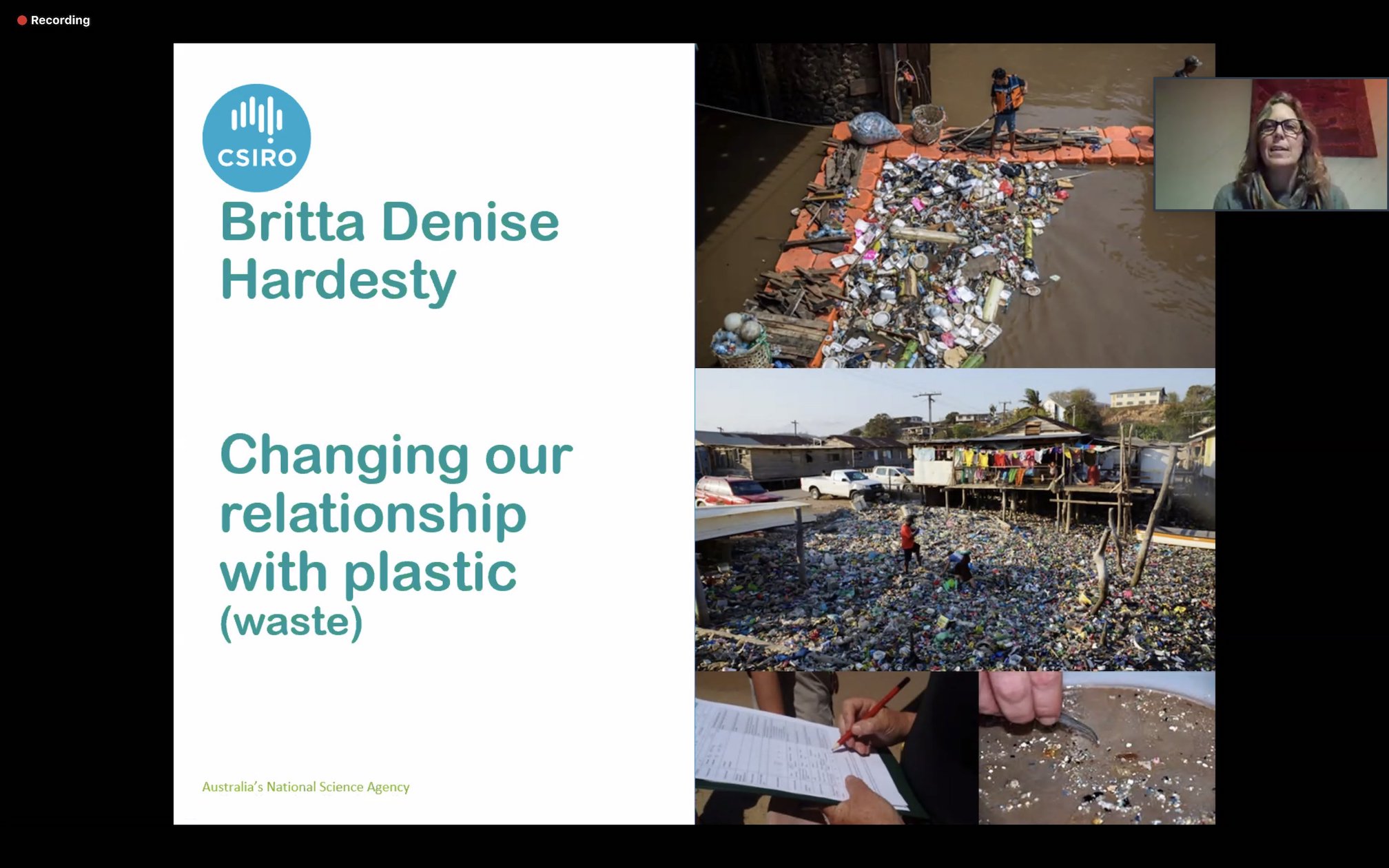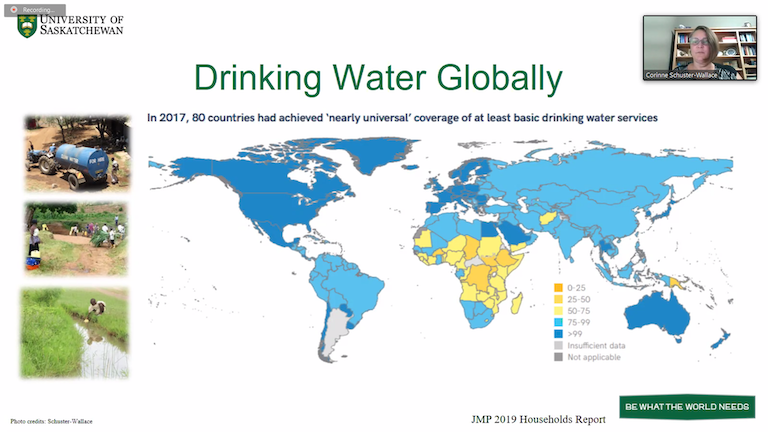
A key global issue was under the microscope this week at the Beaty Water Research Centre (BWRC). “Water Management in a Changing Climate”, a pan-Canadian symposium, was a co-production of Queen’s Engineering and the BWRC, and the Memorial University of Newfoundland.
As is the new normal, the symposium was held over Zoom – a fact that Jyoti Kotecha, an Associate Director of Research & Business Development, at the Centre, felt had as many benefits as drawbacks. “Last year, this was a two-day face-to-face event with a methods skill development field trip lead by Dr Geoff Hall, Associate Director, Education and Outreach, BWRC, while this year we’re doing it virtually,” she says. “While we miss the in-person elements, we are seeing much higher attendance numbers this year, with over 90 participants on each day.”
The symposium was co-hosted by the LEaders in wAter anD watERshed Sustainability program (the LEADERS Program, led by Queen’s University) and the Network on Persistent, Emerging, and Organic PoLlution in the Environment (the PEOPLE Network, led by Memorial University) for Highly Qualified Personnel (HQP) training. Both are funded by the Collaborative Research and Training Experience (CREATE) Program of the Natural Sciences and Engineering Research Council of Canada.
The symposium was co-chaired by LEADERS program director, Stephen Brown, an Associate Professor in the School of Environmental Studies and the Department of Chemistry, Queen’s, and the PEOdPLE Network director Bing Chen, Professor & Head of the department of Civil Engineering, Memorial University of Newfoundland. The planning and the organization of the event was lead by Research Coordinators Sophie Felleiter (LEADERS) and Weiyun Lin (PEOPLE ).
“Water management is a pressing issue, and will only become more so as climate change introduces new stresses to both human and natural environments,” says Stephen Brown, the LEADERS program director. “This symposium brought together both established and young scholars, representing some of Canada’s best researchers investigating this issue both as university faculty and also as graduate students.”
The symposium examined issues arising from persistent, emerging, and organic pollutants, which pose ecological and health risks due to their persistent, toxic, carcinogenic, and/or bio-accumulative properties and associated long term ecological and health risks. Many are not regulated or legislated, mainly due to the lack of in-depth knowledge about their fate, transport, and impact, or because of a corresponding lack of effective management and mitigation options. These emerging pollutants are found in air, surface water, groundwater, ice caps, oceans, soils, and sediments, and there is increasing evidence of their toxicity at all trophic levels, highlighting an urgent need for effective management and mitigation approaches globally; a challenge in the context of climate change and important for science and policy.

Each day featured a keynote speaker: Denise Hardesty, Principal Research Scientist, Oceans and Atmosphere, with the Commonwealth Scientific and Industrial Research Organisation (CSIRO), Australia, on the first day, speaking on "Changing our relationship with plastic (waste)"; on the second day, Corinne Schuster-Wallace, an Associate Professor at the University of Saskatchewan and the Global Water Futures group, presented "Creating Ripples".

One key feature of the symposium, as Kotecha explains, is that it gave a chance for graduate students at participating institutions to shine, including Memorial University, McMaster, the University of British Columbia, Royal Military College, and more. These students – including 10 from Queen’s Engineering – gave over 30 presentations across the two-day event, divided into six streams:
- Emerging contaminants in the context of environmental engineering;
- Global and community health
- Fate, effects and monitoring of various contaminants;
- Water and wastewater;
- Oil pollution, response and treatment; and
- Ecotoxicology
Presentations were judged, and winners announced at the end of the second day: Eden Hataley of Queen’s winning the LEADERS stream with Max Robinson (Queen’s) as runner-up. Md Arifur Rahman (Memorial) won the PEOPLE stream with, Candice Chua (Pacific Environmental Science Centre) and Abhishek Dutta (UBC) tied for runner-up.
Attendees were also allowed to choose between concurrent round-table discussions on the second day of the event, with two "rooms" allocated to cover a range of topics:
- Indigenous engagement in research and training
- Mitigation of impacts to marine oil spills
- Microplastics and other emerging contaminants in water
- Wastewater: challenges and opportunities
"The symposium was an excellent opportunity to improve vital skills in knowledge-sharing and to field questions from an audience with multidisciplinary expertise," said Eden Hataley, who presented Assessing the sorption of the cyanotoxins microcystins to microplastics at the symposium. "As a graduate student, and as a researcher, this was an invaluable experience to present my research as well as to learn from my peers and inspirational keynote speakers."